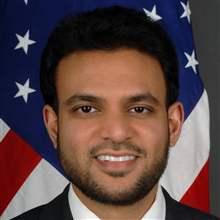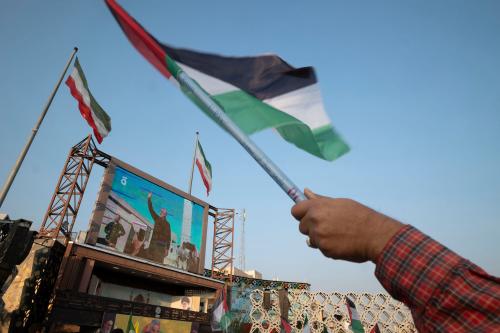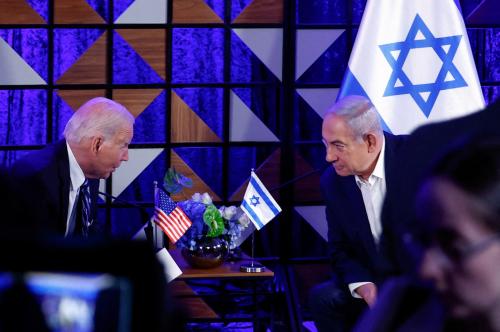As the National Commission on the September 11, 2001 Terrorist Attacks emphasized, significant progress against terrorism cannot be achieved exclusively through the use of military force. This paper argues that in order to win the “battle of ideas,” the United States government must carefully reformulate its strategy and work with the Muslim world to promote mainstream Islam over terrorist ideology. The global effort to end terrorism must be more effective in utilizing its strongest ally: Islam. There is nothing more persuasive to Muslims than Islam. If the global coalition to stop Al-Qaeda and other terrorists groups is to succeed, it must convince potential terrorists that Islam requires them to reject terrorism. As a part of this effort, this paper recommends the following:
First, rather than characterizing counterterrorism efforts as “freedom and democracy versus terrorist ideology,” policymakers should instead frame the battle of ideas as a conflict between terrorist elements in the Muslim world and Islam.
Second, policymakers should reject the use of language that provides a religious legitimization of terrorism such as “Islamic terrorism” and “Islamic extremist.” They should replace such terminology with more specific and descriptive terms such as “Al-Qaeda terrorism.”
Third, the United States should seek to build a broad and diverse coalition of partners, not limited to those who advocate Western-style democracy, and avoid creating a dichotomy between freedom and Islamic society. Such a coalition should incorporate those who may have political differences, so long as they reject terrorism.
Fourth, the United States should enlist the assistance of scholars of Islam and the Muslim world to determine how best to frame the mission of the global counterterrorism mission. Rather than framing the conflict as “pro-freedom” or “anti-Jihadist,” these scholars should analyze the most persuasive methods for applying Islamic law to reject terrorism.
Fifth, the United States should incorporate the Muslim community as well as scholars of Islam and of the Muslim world in the policymaking process to help craft policies that reflect a more nuanced understanding of those targeted.
Sixth, the United States should promote and distribute scholarship such as the North American Muslims Scholars’ Fatwa against Terrorism and the Aal al-Bayt Institute’s anti-terrorism rulings, which carefully analyze issues such as the use of force in Islam and conclude that terrorism must be rejected unequivocally.
Seventh, recognizing the benefit of strengthening the authoritative voices of mainstream Islam, the United States should welcome and encourage the further development of mainstream Muslim organizations and moderate institutions.
Finally, the United States should continue to promote effective economic and social reforms and to work with allies in crafting fair and peaceful resolutions to conflicts in the Middle East and in other parts of the Muslim world, as these conflicts are often the preeminent grievances fueling extremist violence.



